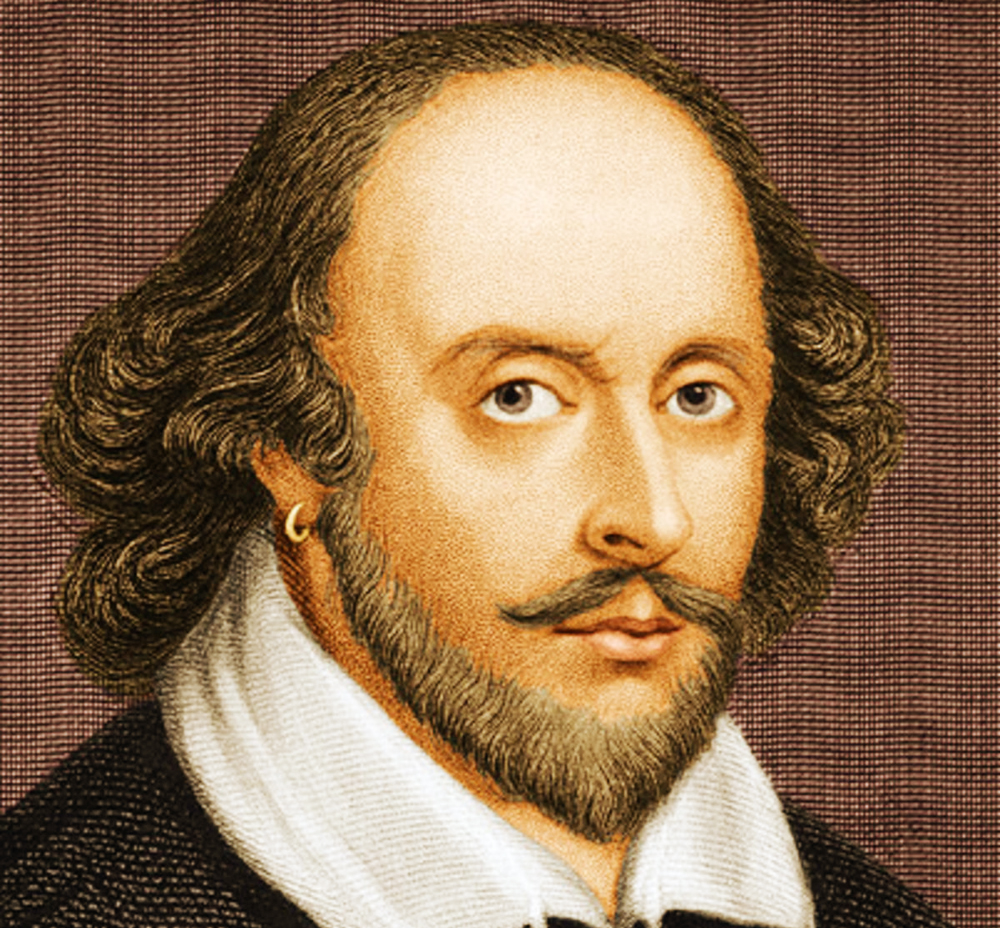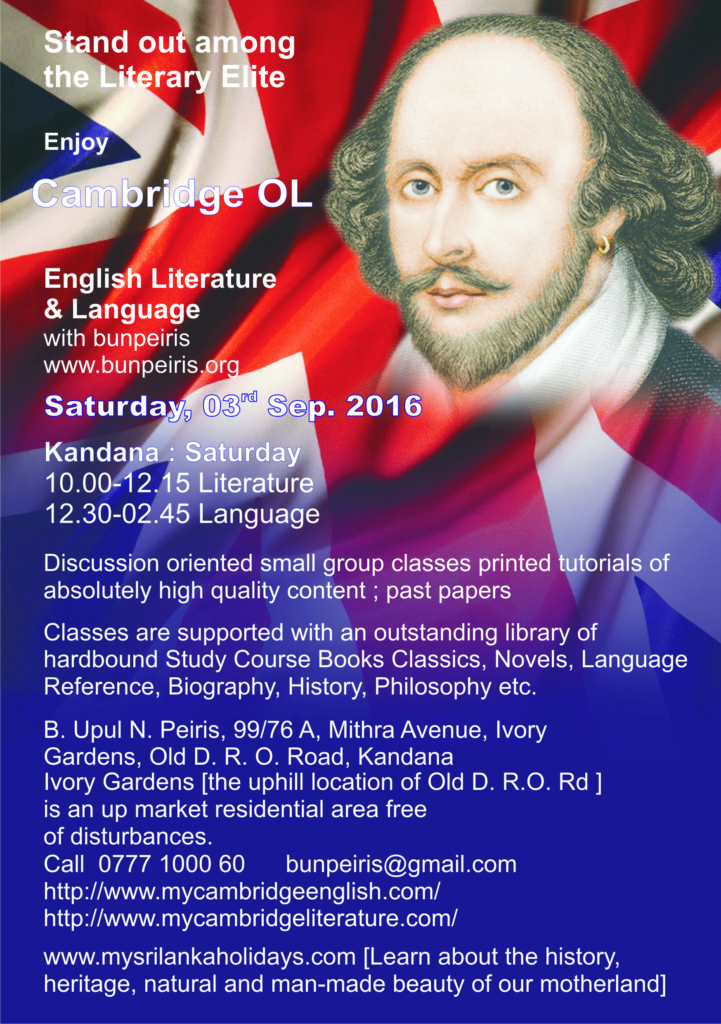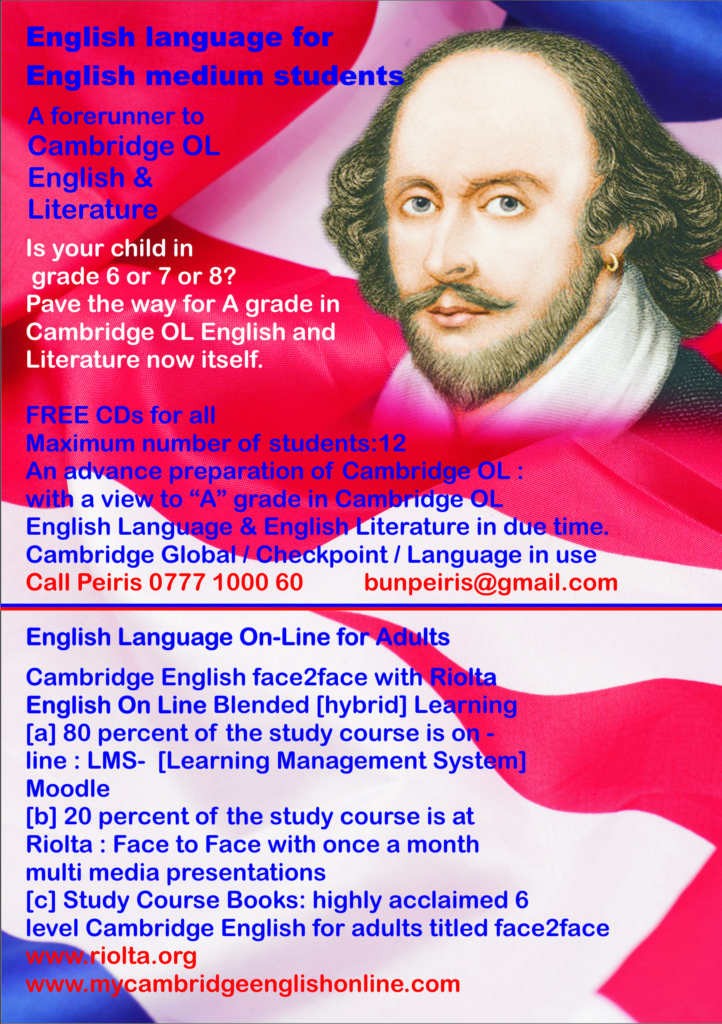The Master With An Earring
THE MASTER WITH AN EARRING
By bunpeiris
|
“Will stands out not only as the greatest literary light ever, but also the supreme intellect, with the exception of Buddha & Maha Rishi Vyasa, the author of Mahabharata. |
“Dilshan the cricketing swashbuckler, the only batsman to have a cricketing stroke [Dilscoop] named after him, got it all:will, dash and dare. And he got a diamond in his left ear too. Eh!
|
 |
 |
Of all the images of Will, I like this most. His gold earring is in the same grain as the diamond on the left ear of Dilshan. The first time ever I bumped onto the image, it made me grin from ear to ear. I am still grinning. Who would have imagined to see an earring, a heathen piece of oriental jewellery on an Englishman [who had never set foot overseas] in the Elizabethan period? It is pretty whimsical. What does the artist try to say? What’s his message to us, the lesser folks? My take on this is [or rather to get into the literary terminology or theoretical language, my interpretation] the earring symbolizes the dash and dare of the finest dramatist ever roamed under the sun moon and stars of ours. Shakespeare wasn’t of the same mould as those of other dramatists of his era such as Kit Marlowe (1564 –1593), and Ben Jonson (1572 –1637). Will (1564-1616) wasn’t university educated. But now, don’t get misled: Shakespeare’s grammar school education in itself, in those days, was much superior to the modern university education in languages. But then that isn’t the foremost reason for the argument on his unconventional tendencies. Here is the bomb. Shakespeare refused to be weighed down by the social traditions: he dared to let Shylock shock the Christian audience, accusing them with sheer hypocrisy. Furthermore, he dared to stray from the traditional dramatic conventions of classical dramatists (Greeks) such as Sophocles (c. 495-406 BCE) & Aeschylus (c. 525–456 BCE). Shakespeare may have read classical dramas in Greek or in Latin, yet his dramas were distinctive with differences in approach, style, content and staging. [More on this later]. A case in point is, Shakespeare, unlike the Greek dramatists, suffered no pricks of conscience in introducing comical elements into the tragedies of epic scale. Still more, to entertain the gallery, he went into feed his characters with double entrende [a word or phrase open to two interpretations, one of which is usually risqué or indecent], the language that as dirty as it could get. Will wouldn’t have unwarranted pangs of shame when it comes to entertainment. Even Portia, a lady to her finger tips would get kinky. When Nerissa referring to Portia’s plans to disguise themselves as men questions “why shall we turn to men?”, Portia bristles getting very naughty:”shame, what a question is that?” Graziano is such a terror, the teacher wouldn’t dare to discuss. In the Elizabethan era (1558–1603) stage acting with such wild streaks of obscenity here and there, in front of such a broad spectrum of humanity that on and off had even royalty and nobility was utterly daring. Moreover, breaking away from the established dramatic conventions would tantamount to literary blasphemy. But Will had it all: will, daring and confidence in himself. I would love to see same in you all guys & dolls: all you need is those three little words. Studying literature is all about saying what you think of the story: your thoughts, you opinions, your point of views. That’s what matters. It’s that easy. Oh! One more thing before I escape from you rogues; bring in the evidence from the primary source [strictly the text] to support your argument. Follow PEEL [Point, Evidence, Explanation & Link]

Tuition Literature Cambridge OL

Tuition English Language Cambridge
